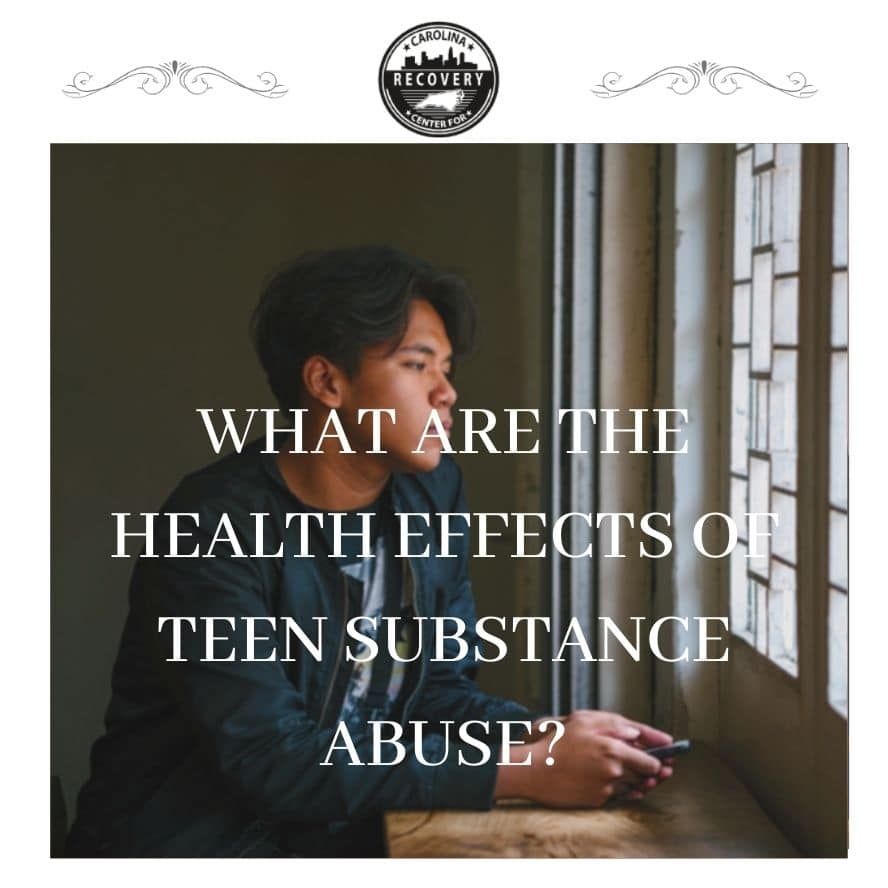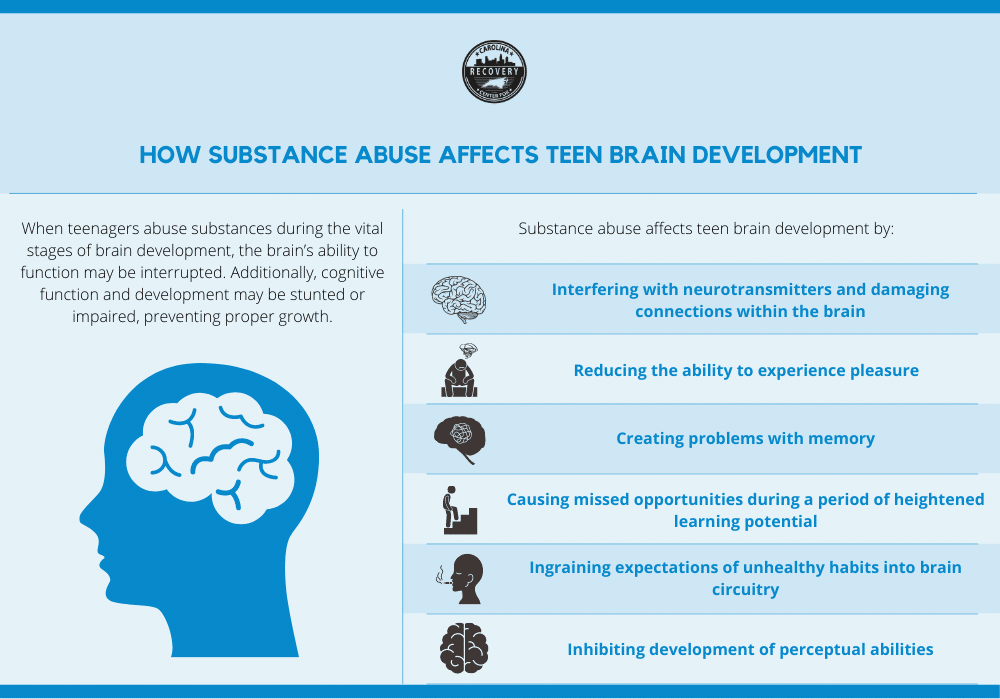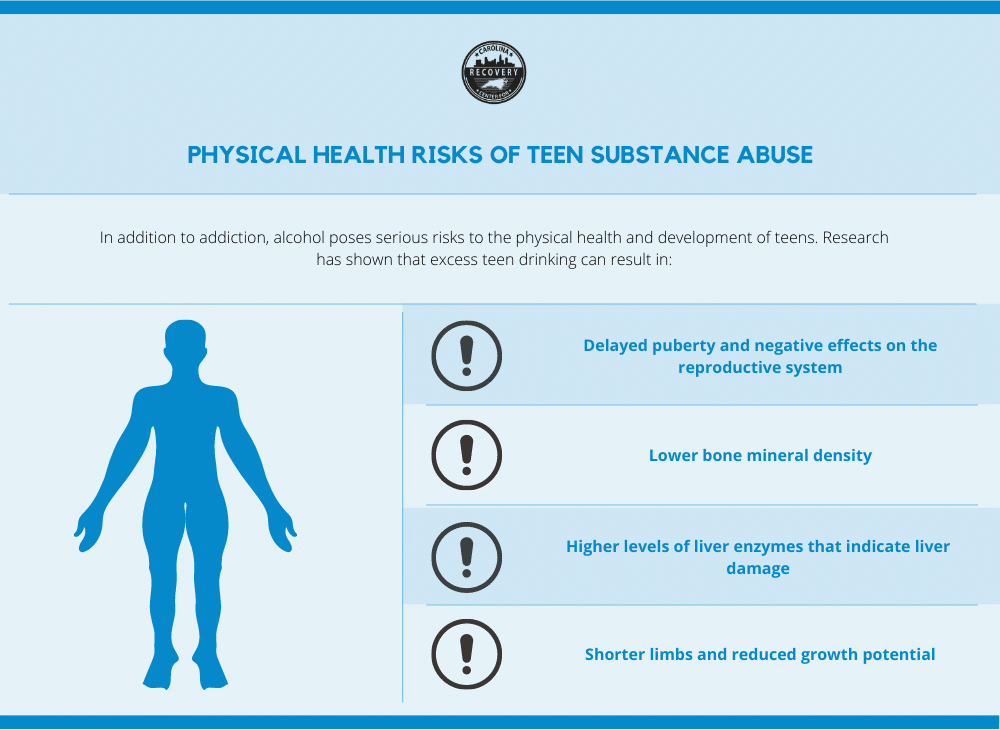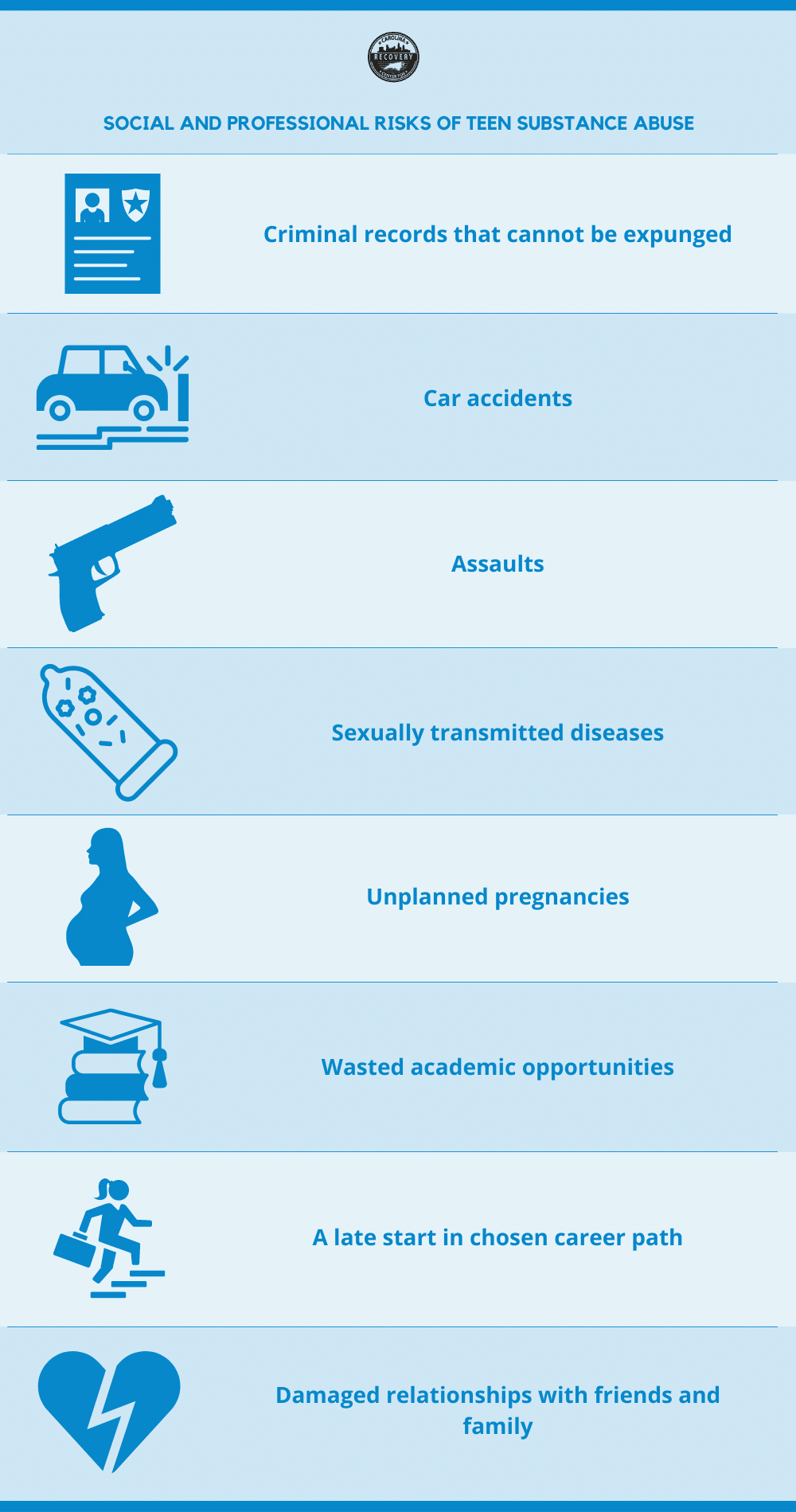What are the Health Effects of Teen Substance Abuse?

Medically Verified: 2/1/24
Medical Reviewer
Chief Editor

All of the information on this page has been reviewed and verified by a certified addiction professional.
Teenagers are more likely to engage in risky behavior, such as substance abuse, due to their perceived social benefits (peer pressure or feeling accepted). While experimenting is considered “normal” during the teenage years, teen substance abuse is associated with a number of risks. Unfortunately, teens are more likely to partake in said risky behavior without considering the negative health effects.
While the health effects of teen substance abuse seem enough incentive to stop teens from using alcohol or drugs, this is usually not the case. As a result of substance abuse glorification in the media, peer pressure, and the desire to be “cool”, most teens engage in some form of drug or alcohol abuse at some point in their lives. Any form of substance abuse is considered dangerous, but substance abuse becomes extremely risky among teenagers. This is because a teen’s body and mind have not yet fully developed. If you are concerned that your teen is abusing substances, continue reading for more information on the health effects of teen substance abuse.
Why is the Teenage Brain More Susceptible to Addiction?
Numerous studies of the human brain have attempted to pinpoint the changes that occur during adolescent and teenage years. Health researchers have concluded that dramatic physical and intellectual growth happens during the teen years. As the brain begins to change, varying brain functions will begin to form at different rates.
So, why exactly is the teenage brain more susceptible to addiction? Medical experts have concluded that the pleasure center of a teenager’s brain develops sooner than areas of the brain responsible for decision-making and risk analysis. In other words, teenagers have the ability to process and experience pleasure before their decision-making and impulse control develops. This shouldn’t come as a surprise when you consider the amount of risk-taking teenagers who have no ability to recognize the consequences of their actions.
To explain further, teenagers are more likely to recognize the social “benefits” of substance abuse rather than evaluating the negative health effects. As a result, teenagers are far more prone to quickly developing an addiction to substances when compared with adults who experiment with drugs and alcohol. If you are concerned about a teen’s substance abuse, you should contact a treatment provider for help and support.
How Teen Substance Abuse is Detrimental to Brain Development
During adolescence, young people go through an array of biological and psychological changes. While there are physical markers that indicate a child is growing up, the brain is also developing systems to work more effectively. One of the many ways this is accomplished is through eliminating synapses and connections between different parts of the brain that are unnecessary. This allows the adolescent brain to transform into a more focused and efficient adult brain.
When teenagers abuse substances during the vital stages of brain development, the brain’s ability to function may be interrupted. Additionally, cognitive function and development may be stunted or impaired, preventing proper growth.

How Does Drinking Affect Teens?
Despite the heightened risks, teens are more likely to binge drink alcohol than adults. Binge drinking is the act of consuming enough alcoholic beverages in a short period of time to pass the blood alcohol content limit. Additionally, studies have shown that the teen brain responds differently to alcohol when compared to the adult brain. People who begin drinking during adolescence, especially those who drink a lot, are more likely to develop alcohol use disorder or alcoholism.
In addition to addiction, alcohol poses serious risks to the physical health and development of teens. Research has shown that excess teen drinking can result in:

What are the Social and Professional Risks of Teen Substance Abuse?
In addition to the physical health risks of substance abuse, there are many other consequences that may have lasting effects. Since substance abuse causes poor reasoning and encourages impulsive decisions, there are many side effects that go far beyond the biological and physiological aspects.

Some of the social and professional risks of teen drug or alcohol abuse include:
- Criminal records that cannot be expunged
- Car accidents
- Assaults
- Sexually transmitted diseases
- Unplanned pregnancies
- Wasted academic opportunities
- A late start in chosen career path
- Damaged relationships with friends and family
Teen Substance Abuse Treatment – Carolina Recovery Center
Addiction and alcoholism treatment typically has the best results when early intervention is possible. Fortunately, if you suspect that your teen is abusing substances, you have the chance to help them sooner rather than later. In other words, treating drug or alcohol abuse before your child reaches adulthood will produce the best results. If you know a teen who is showing signs of teen substance abuse, you have the ability to help them through it.
“Carolina Center For Recovery and it’s affiliates exist to give individuals and their loved ones quality care to recover from substance abuse through education, counseling, and compassion by our experienced and trained professionals.”
If you or a loved one are suffering from drug or alcohol addiction, Carolina Recovery Center is here to help. Contact us today for more information on our North Carolina substance abuse treatment programs.

